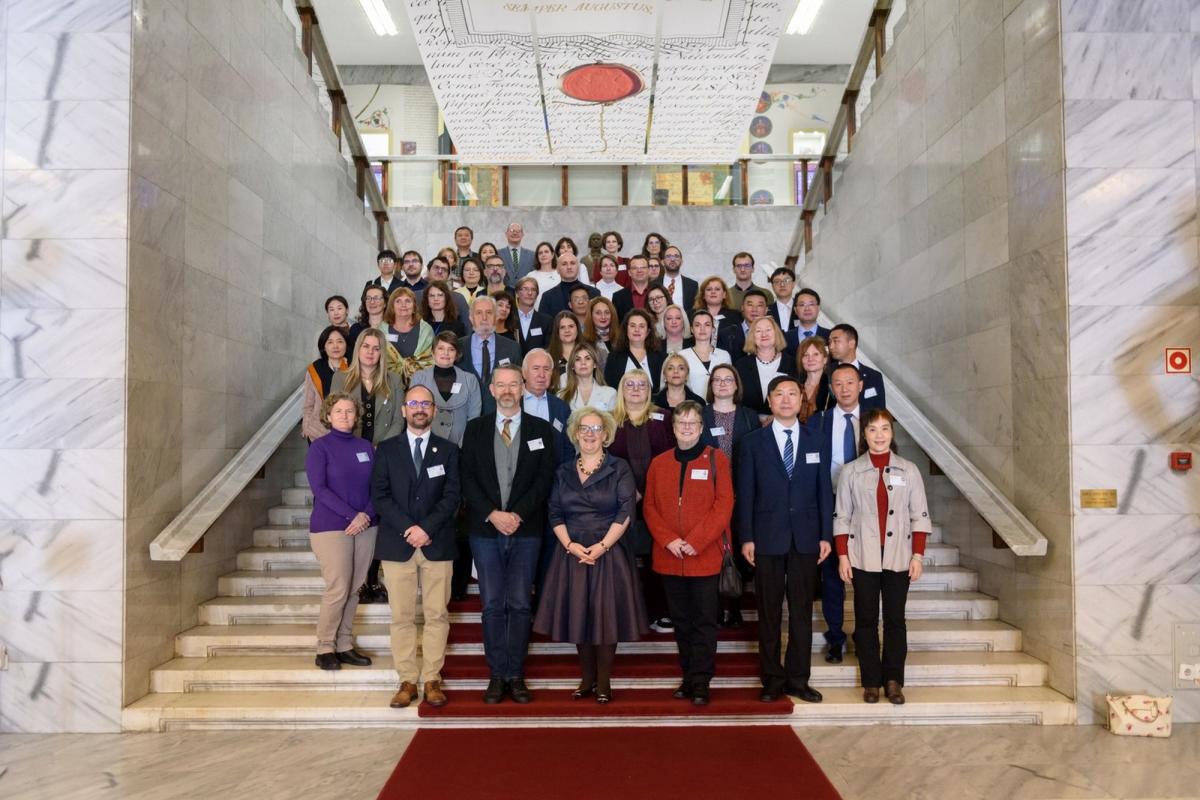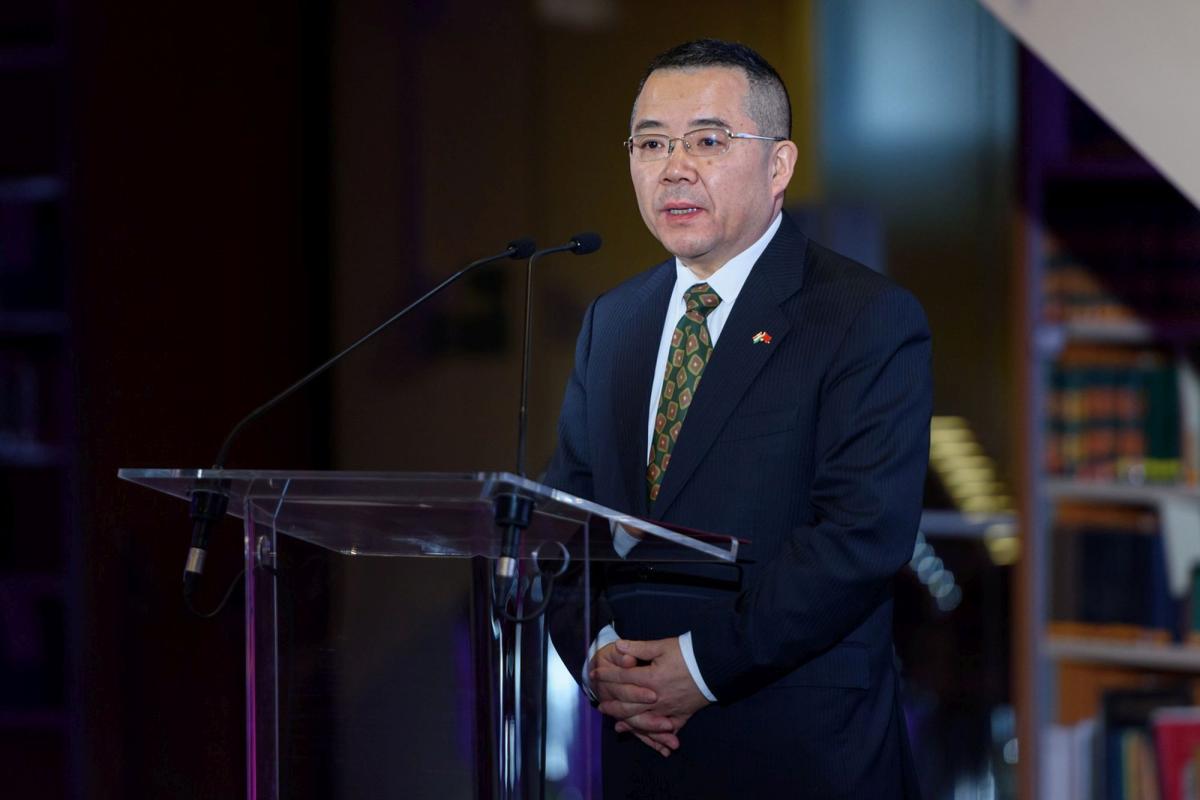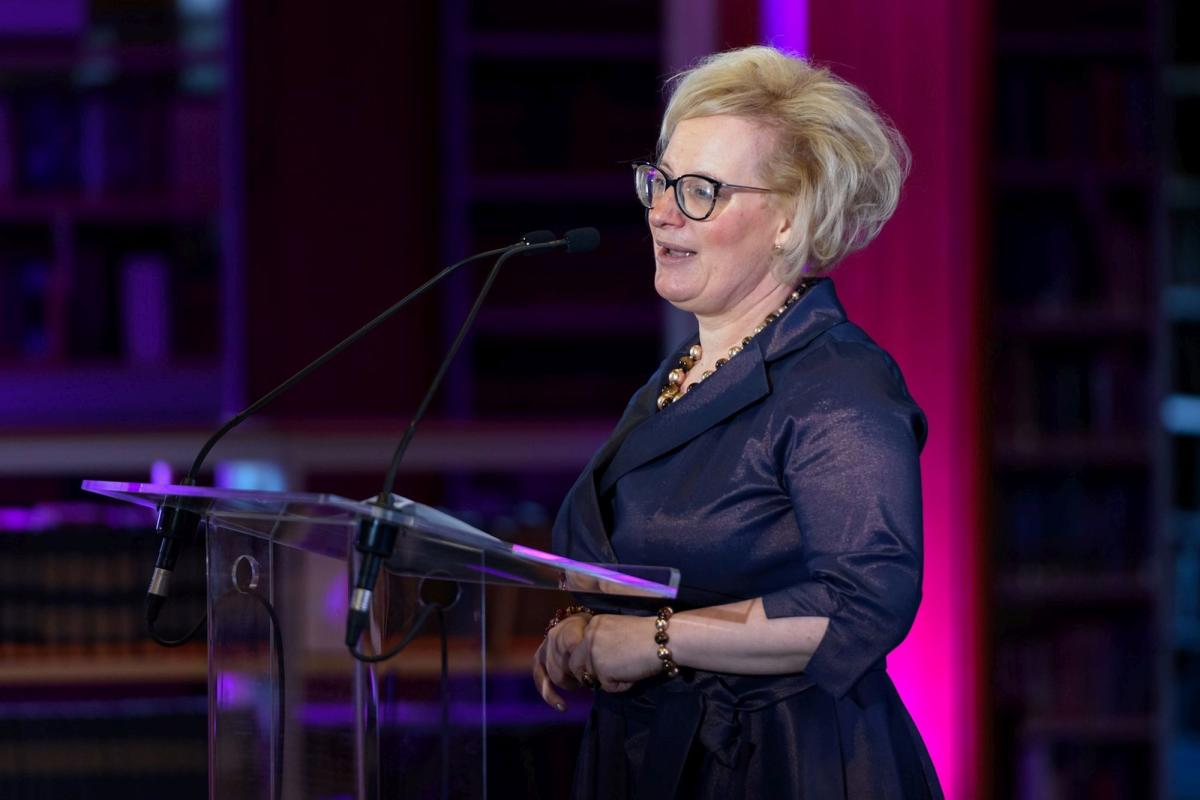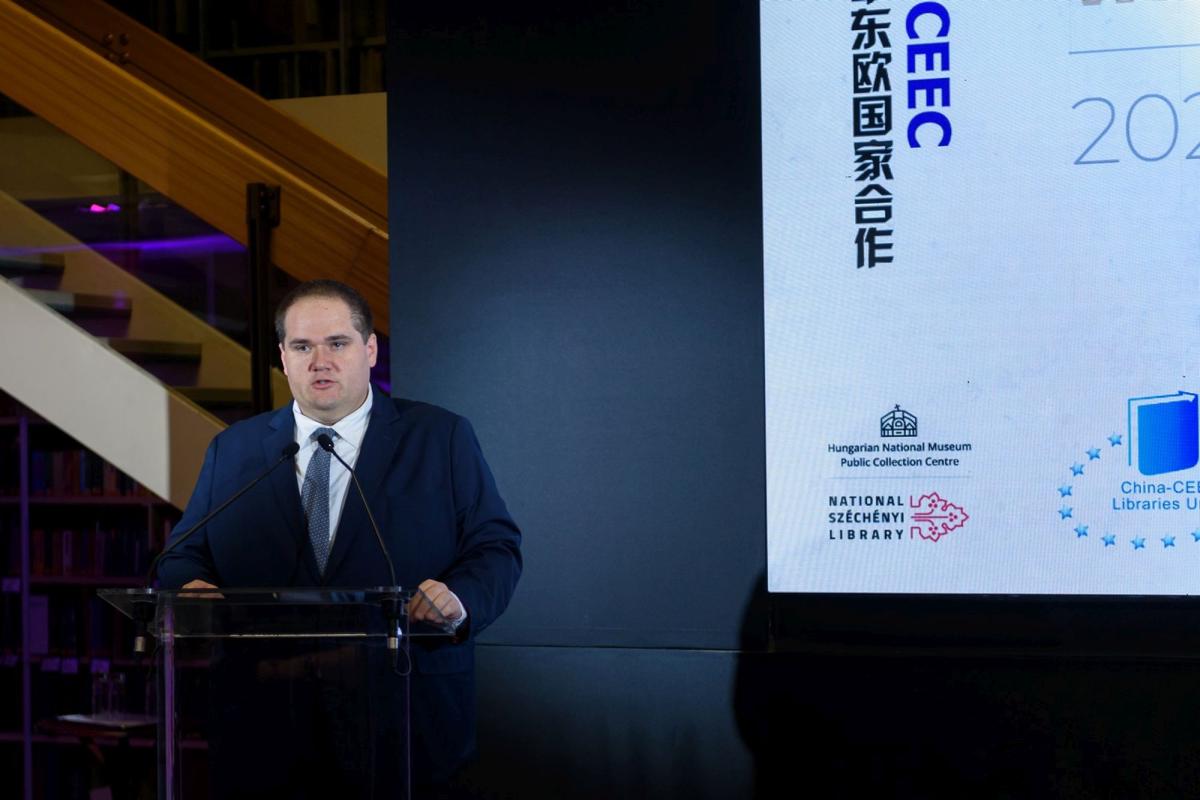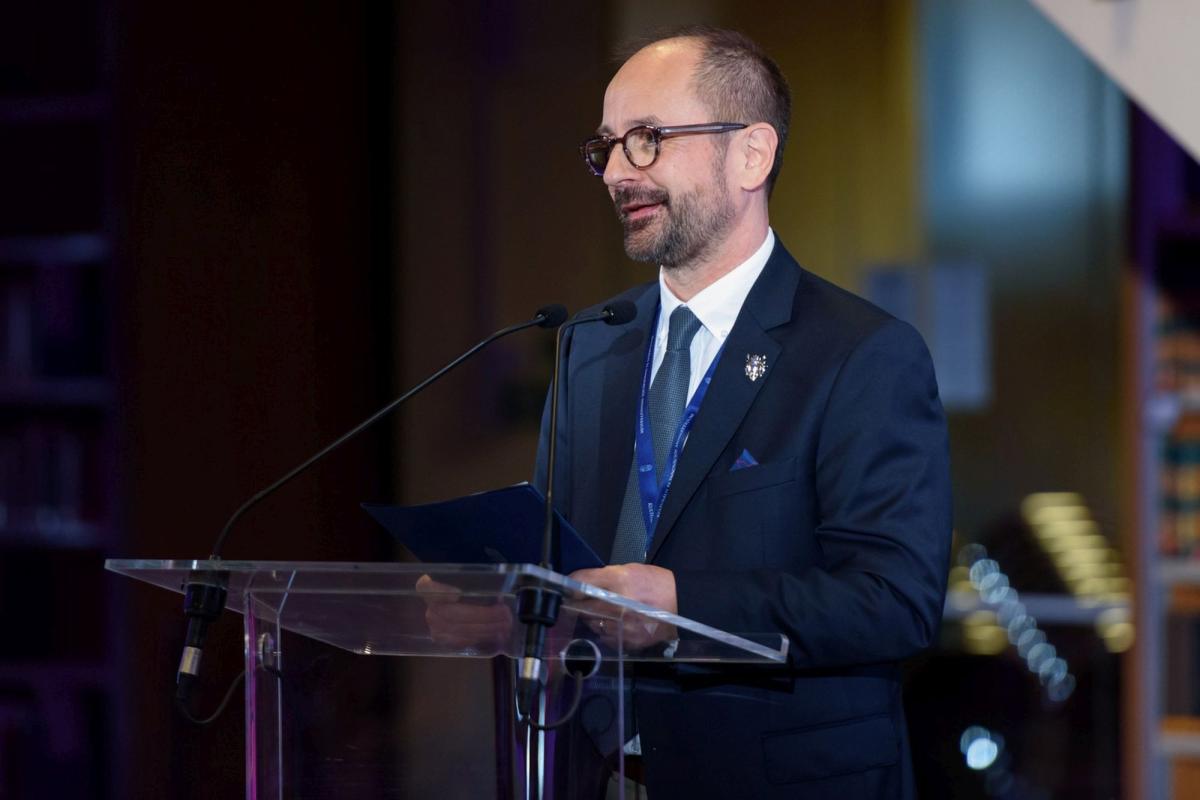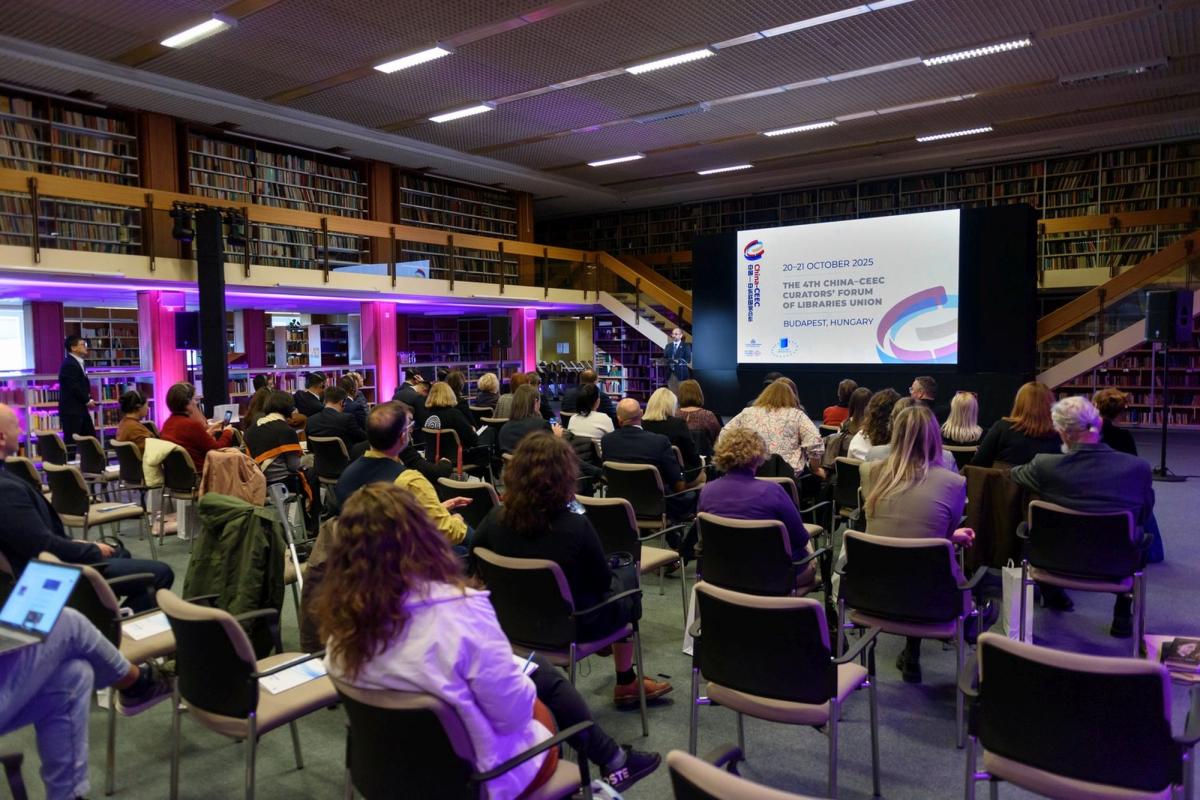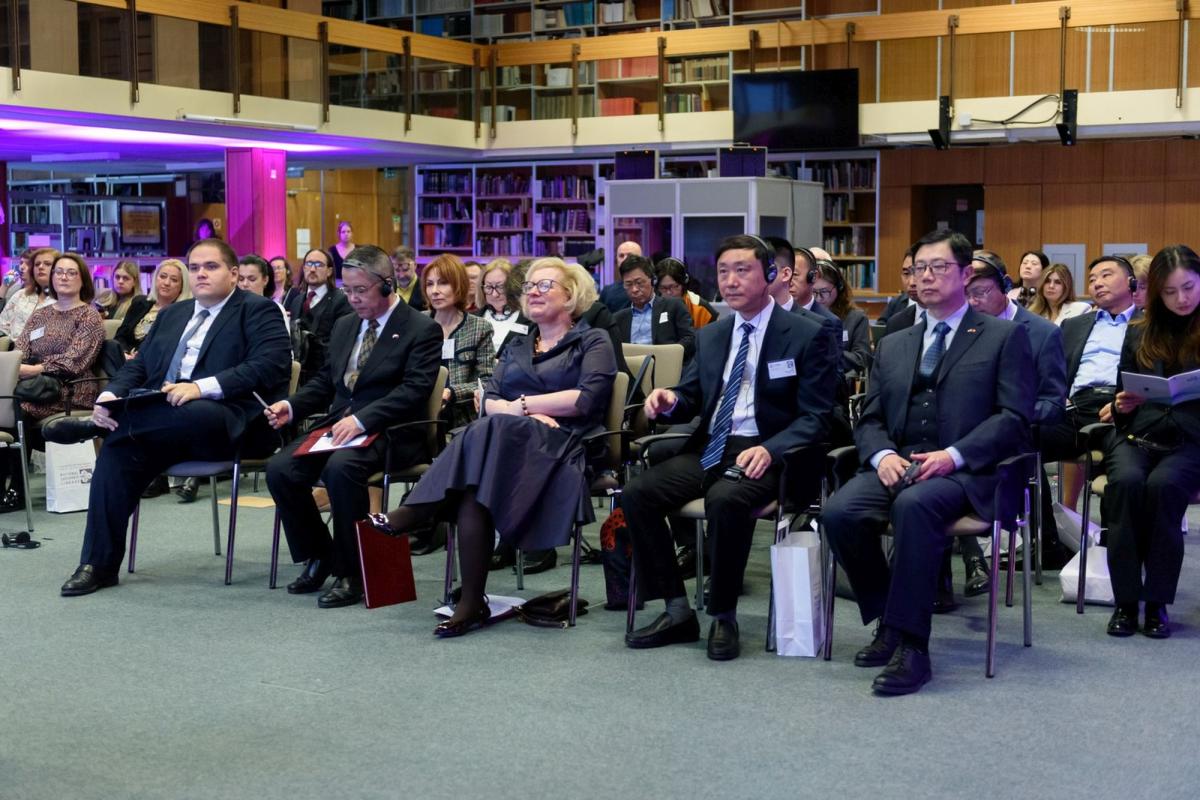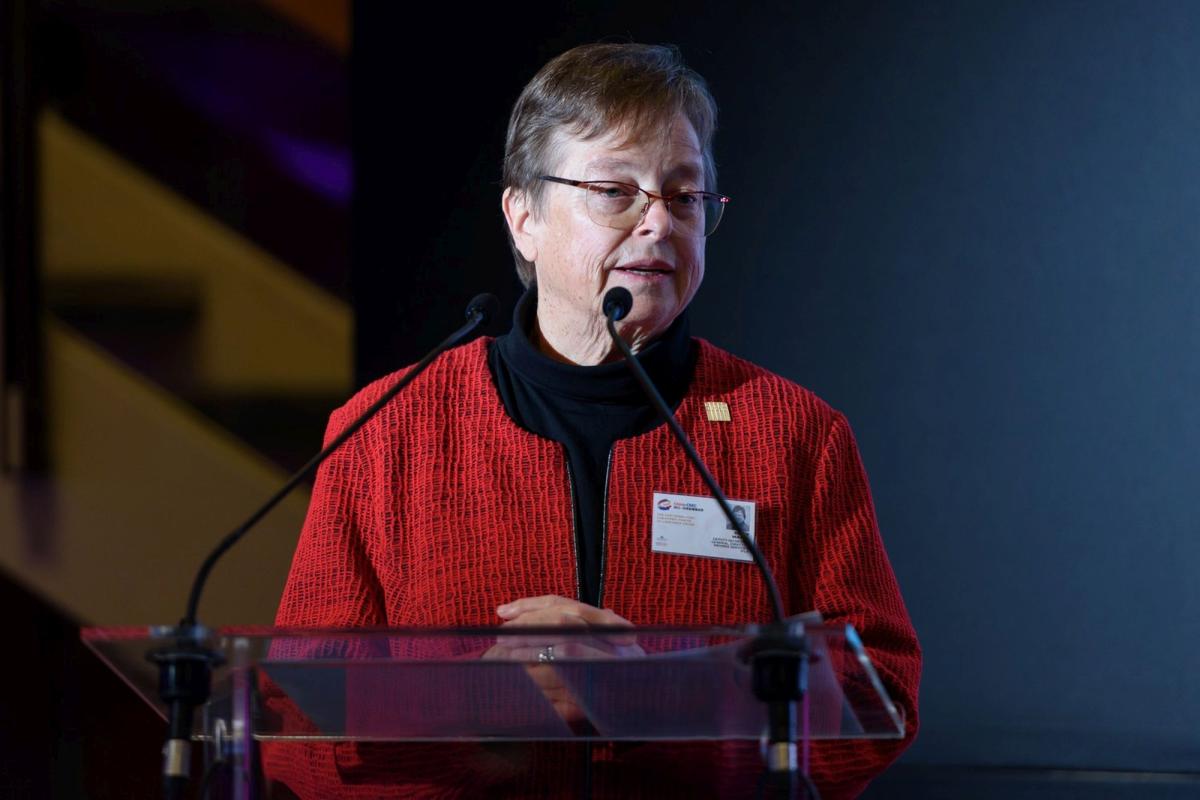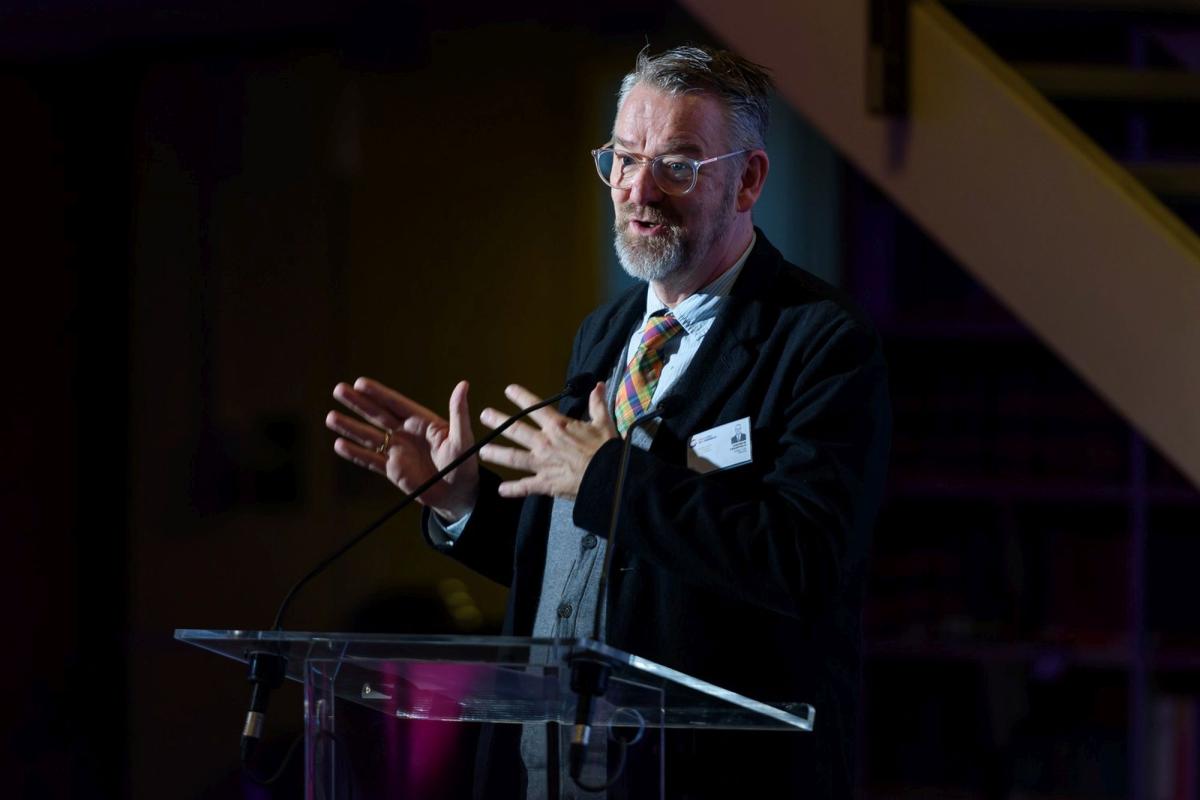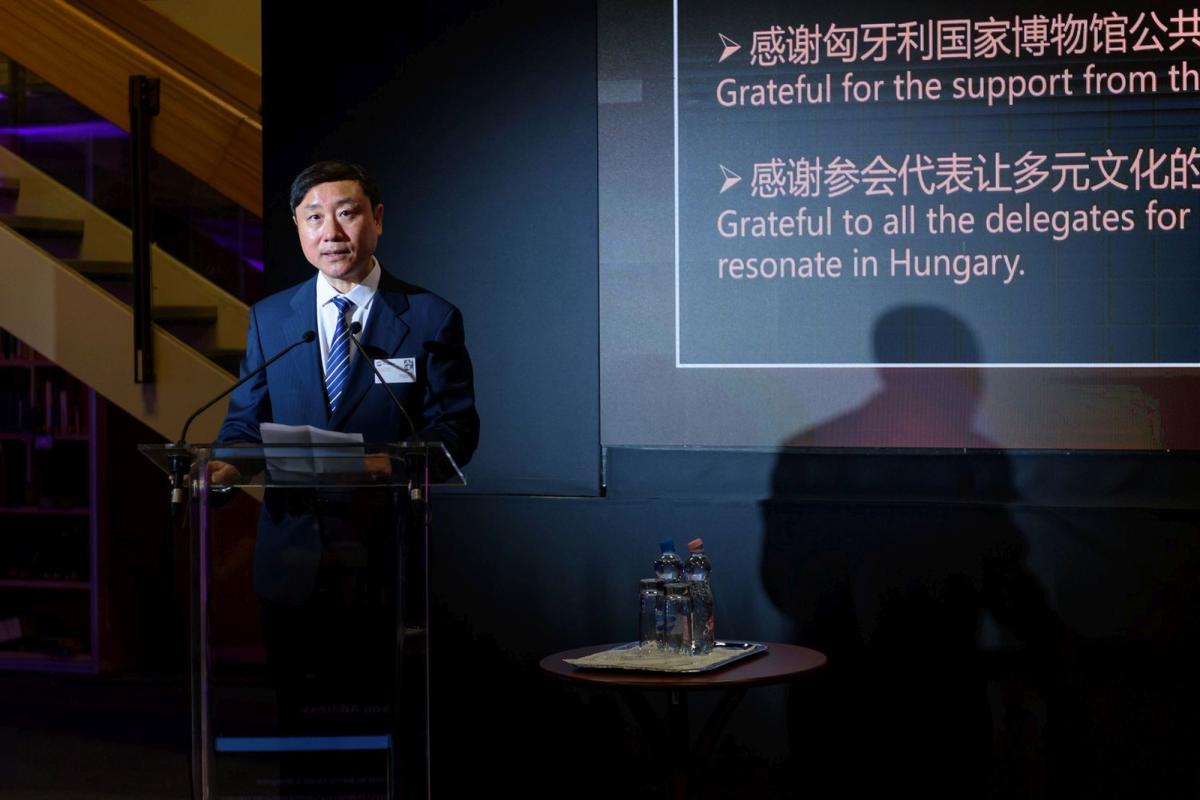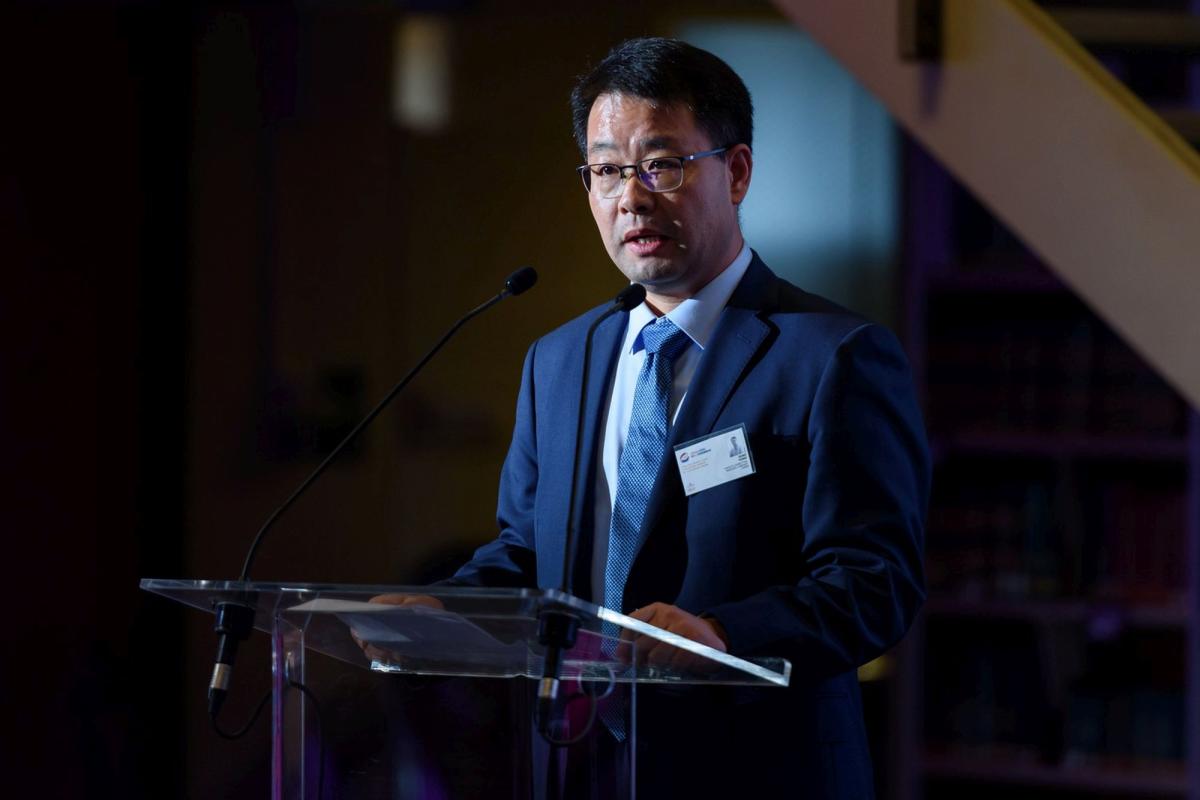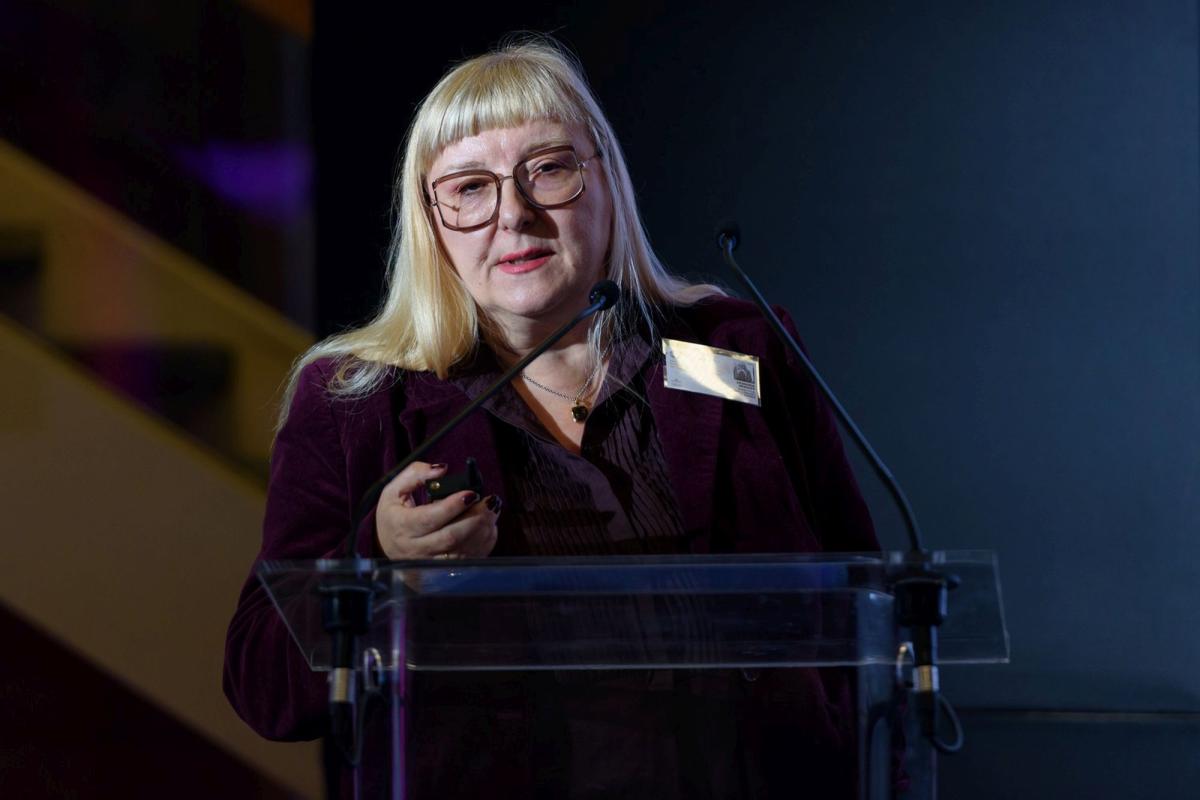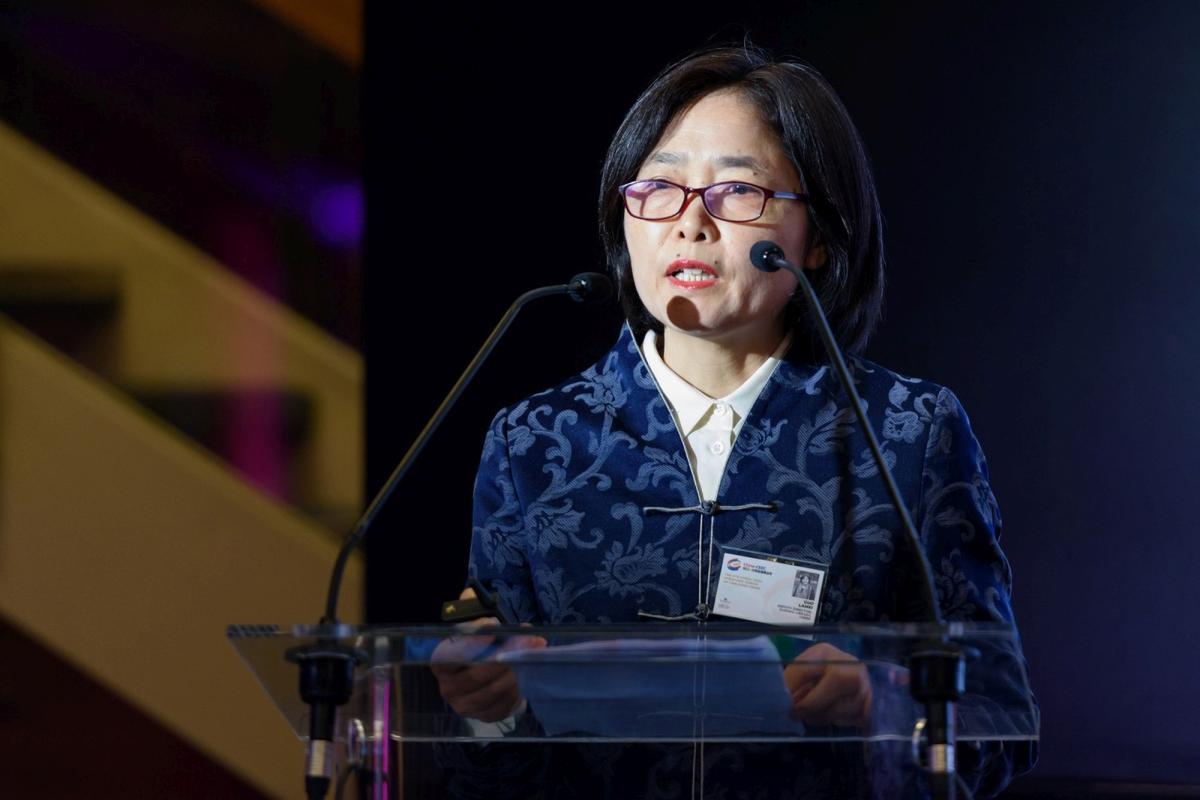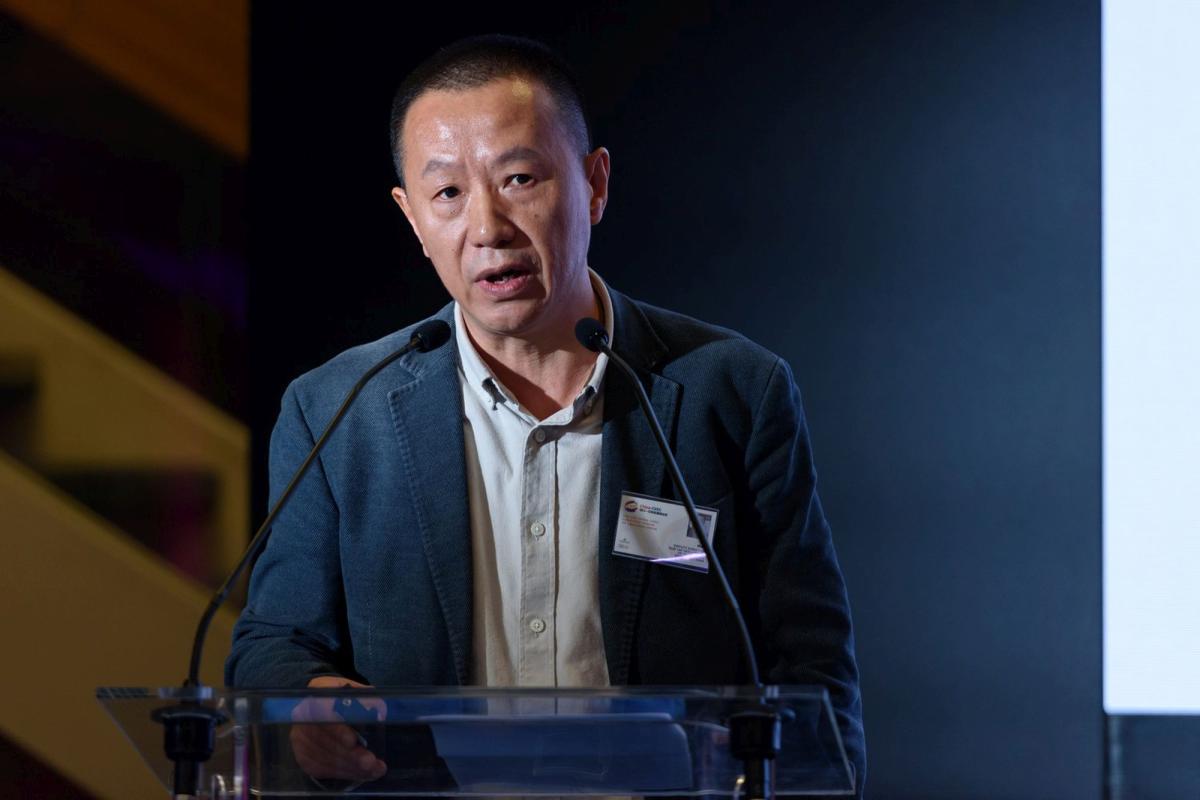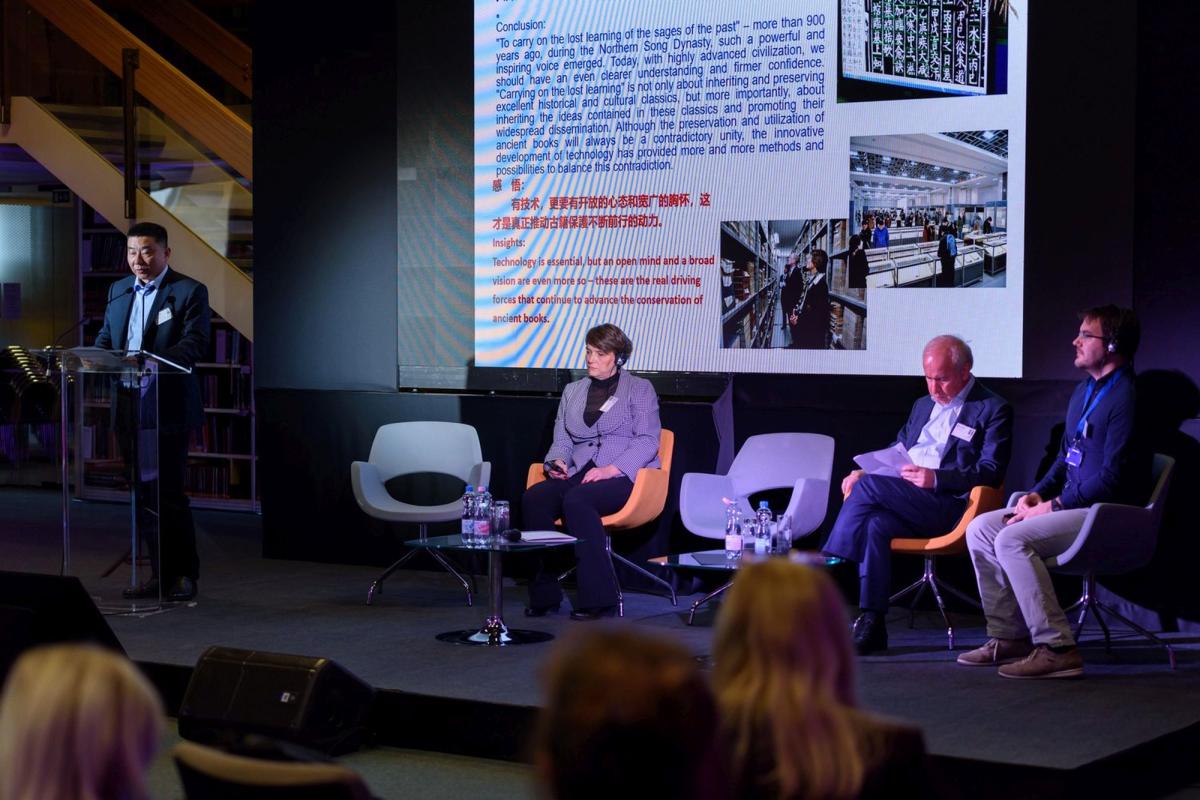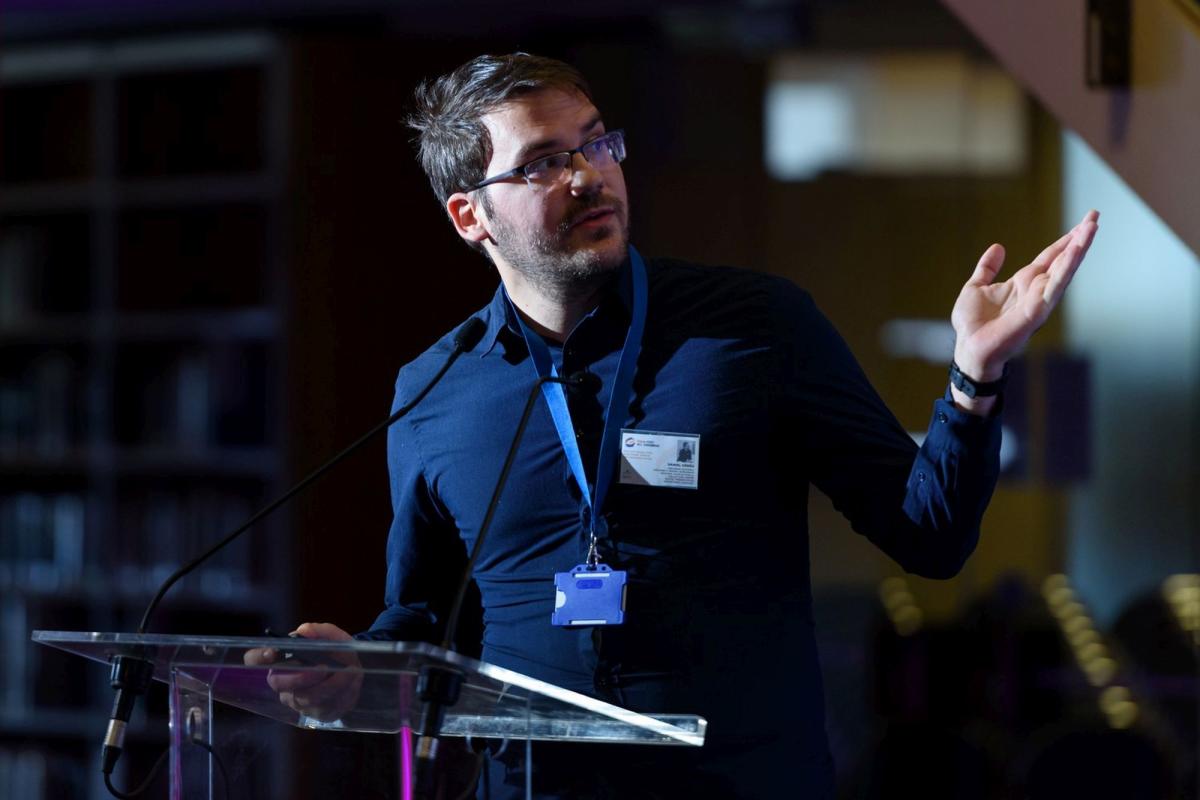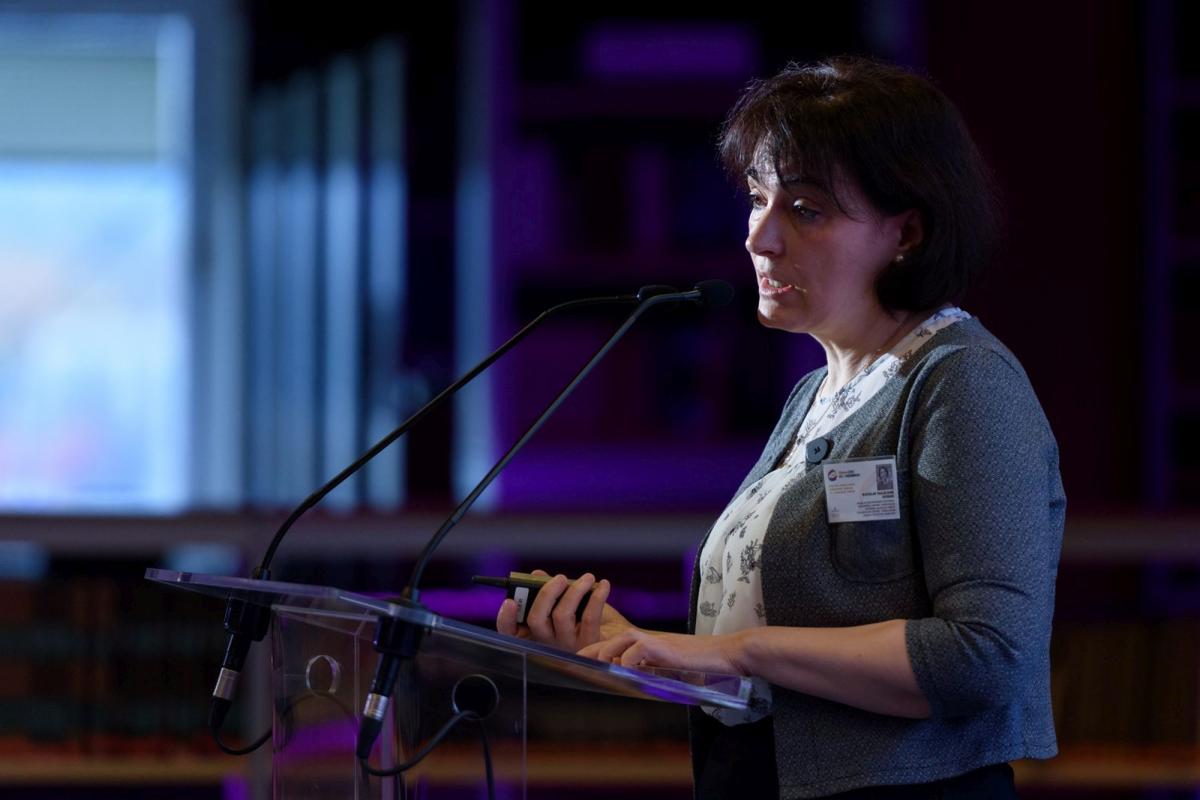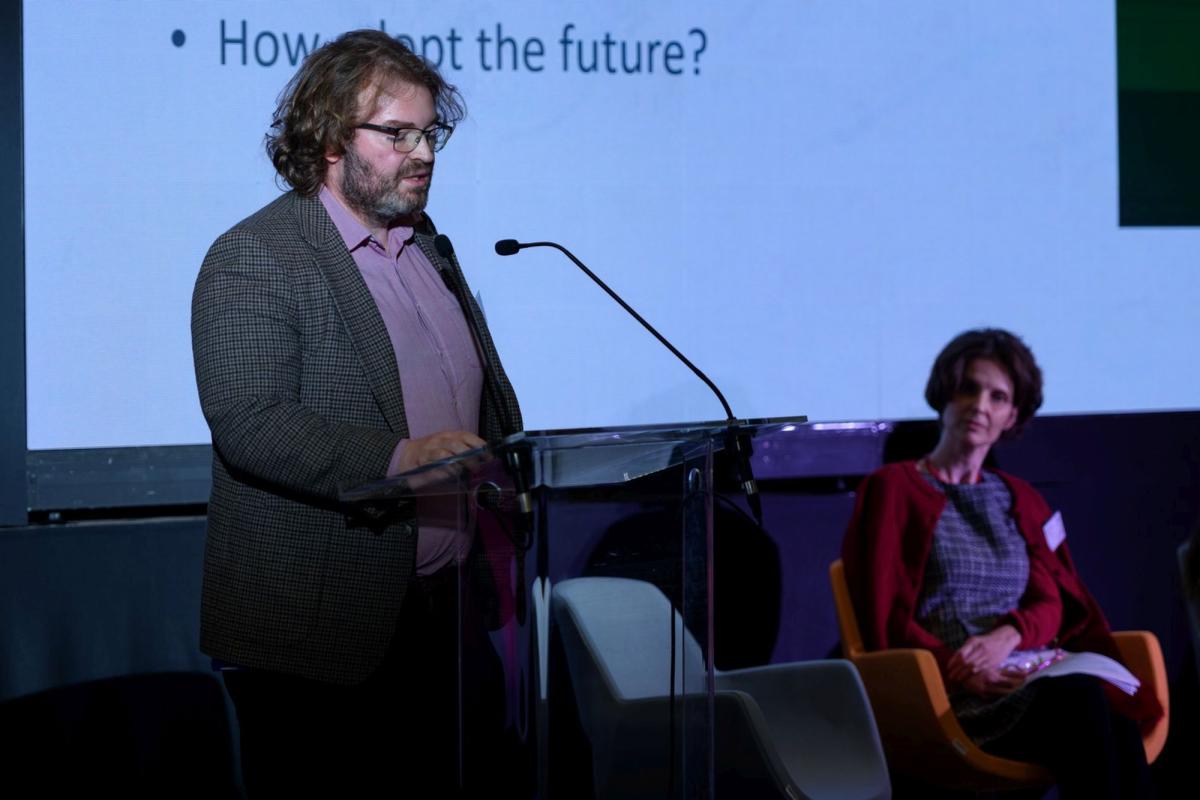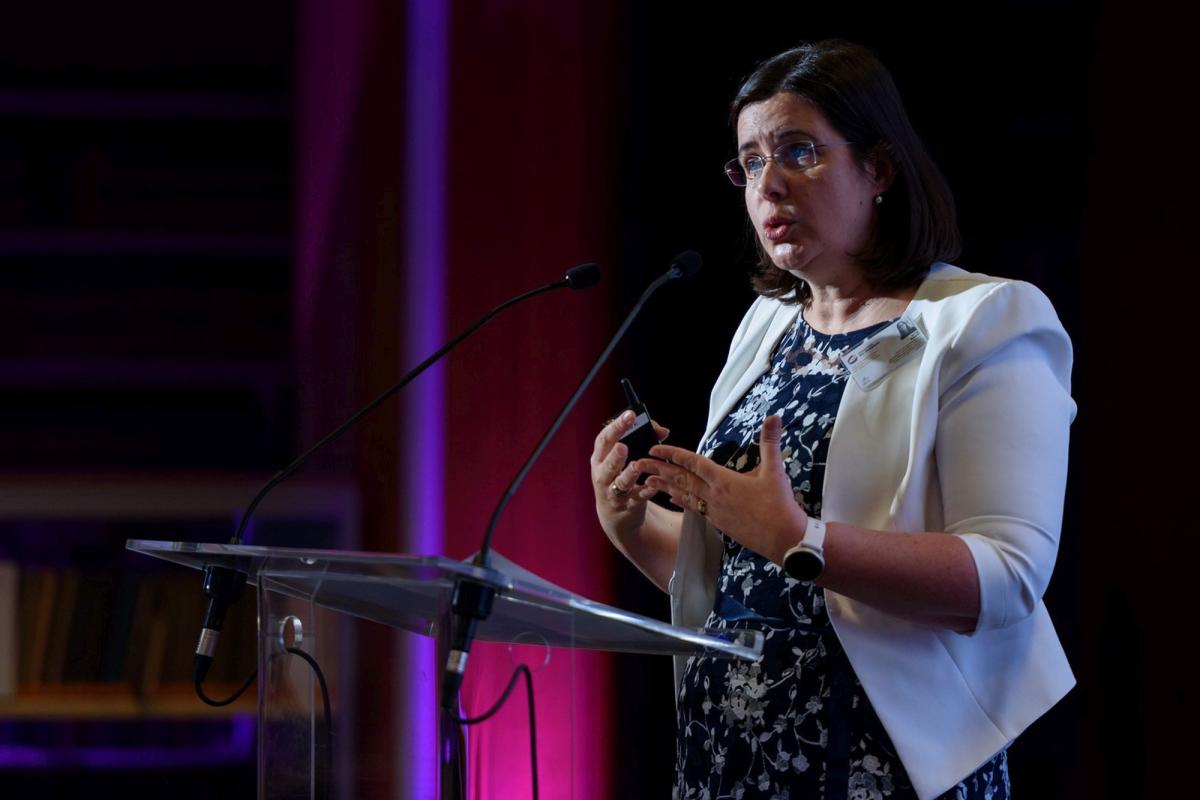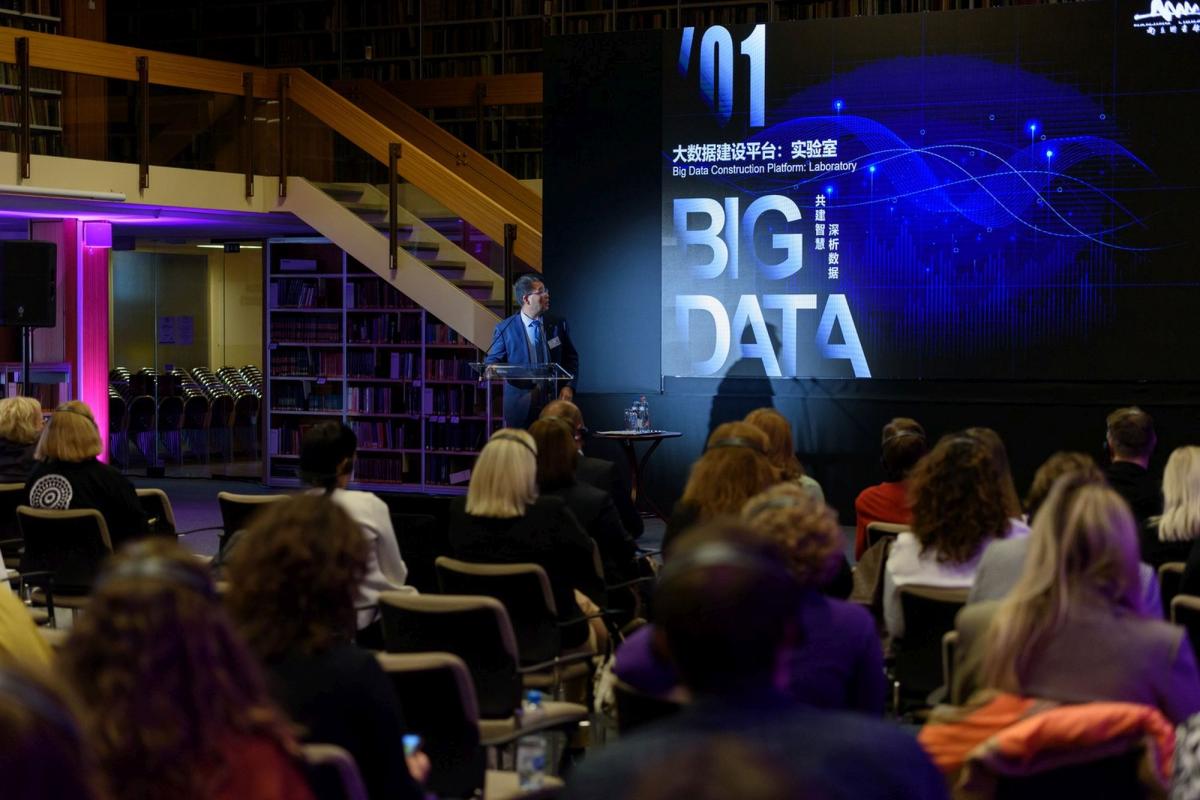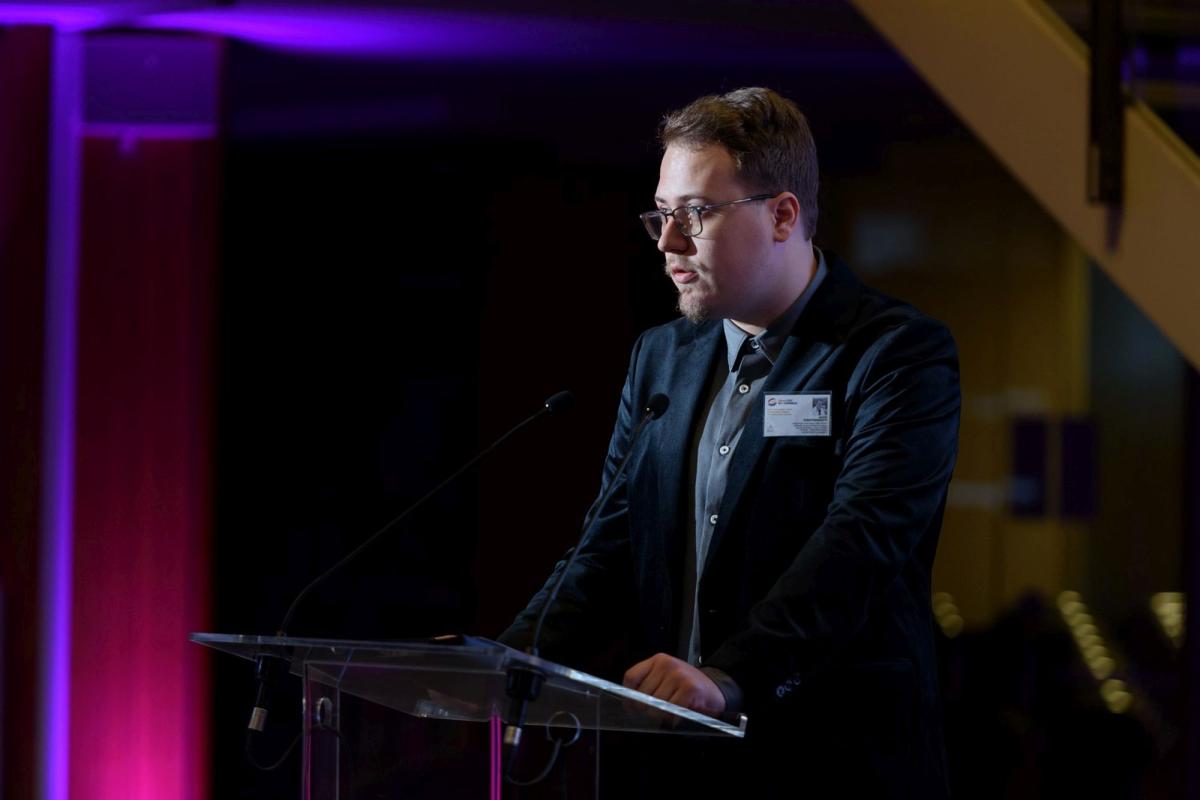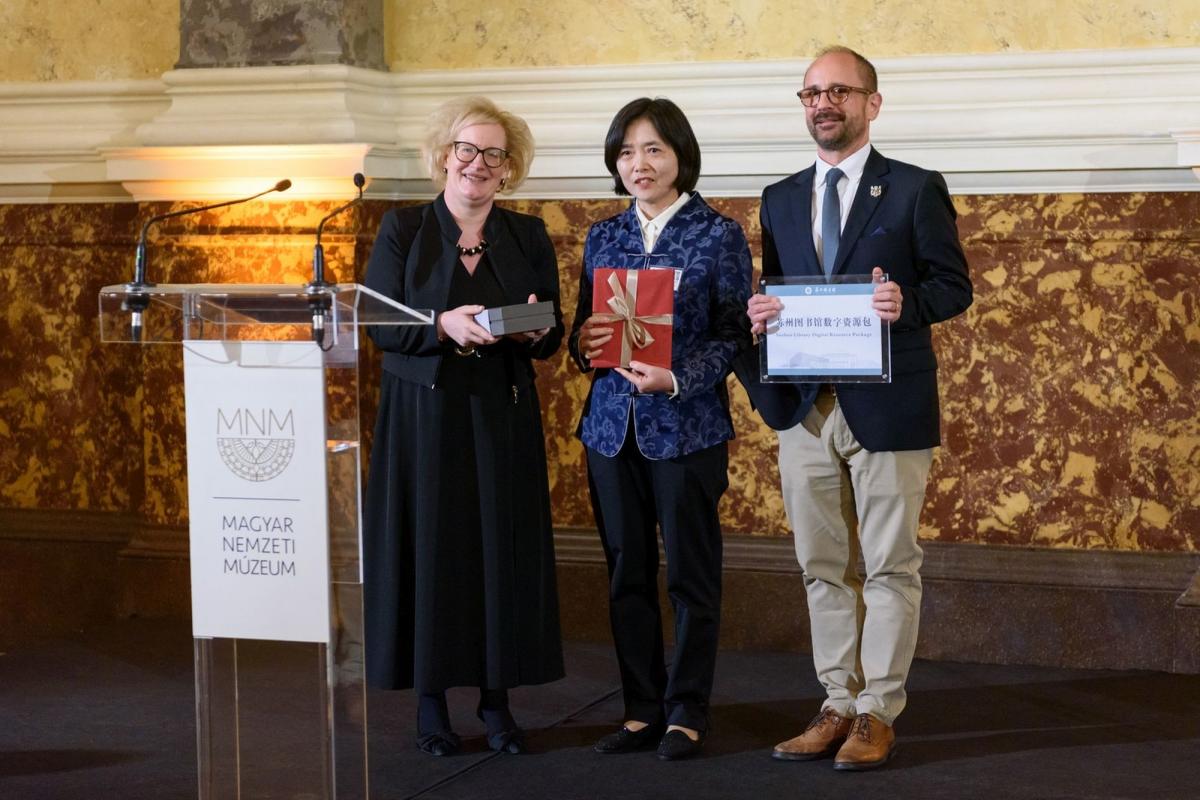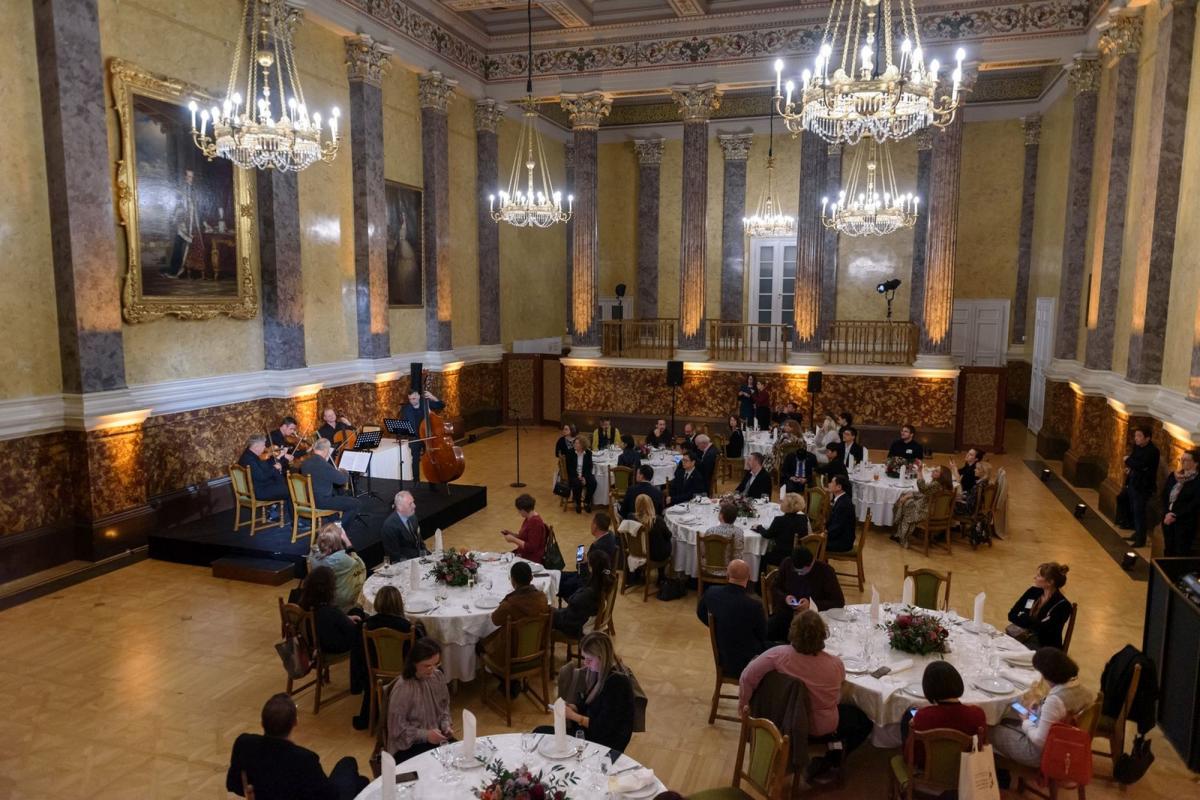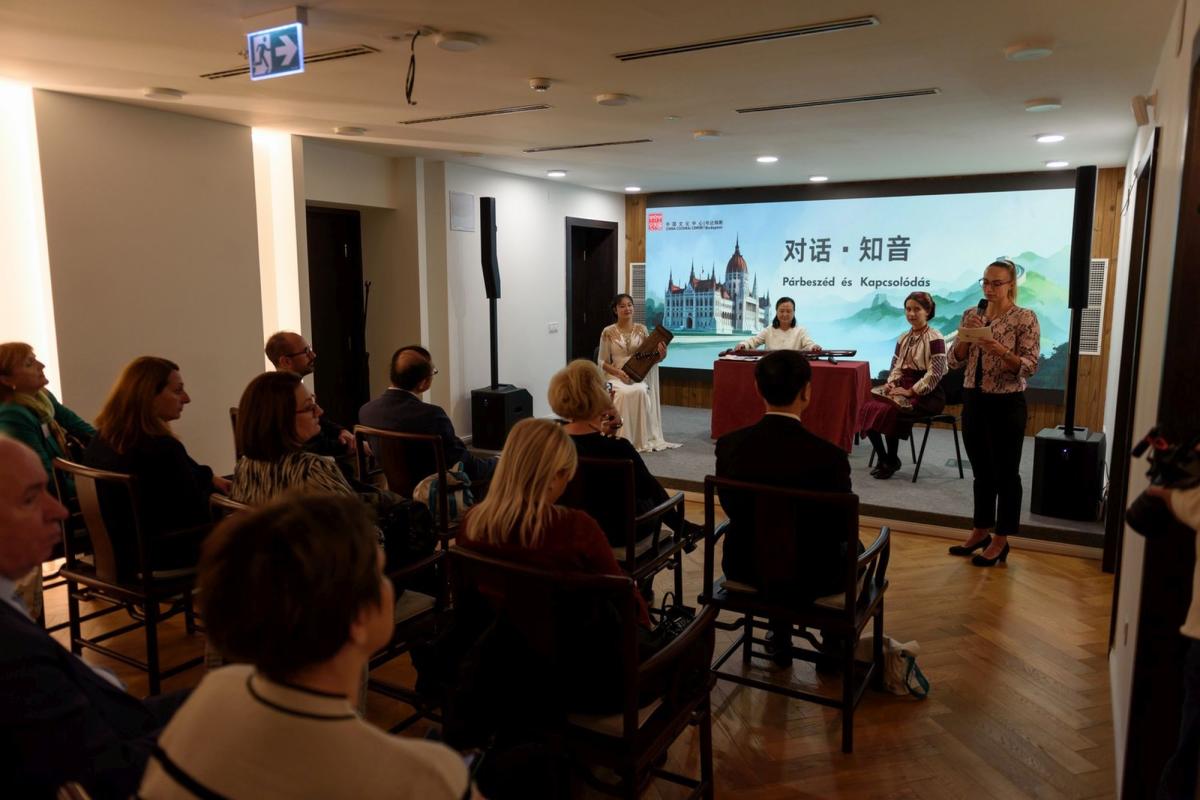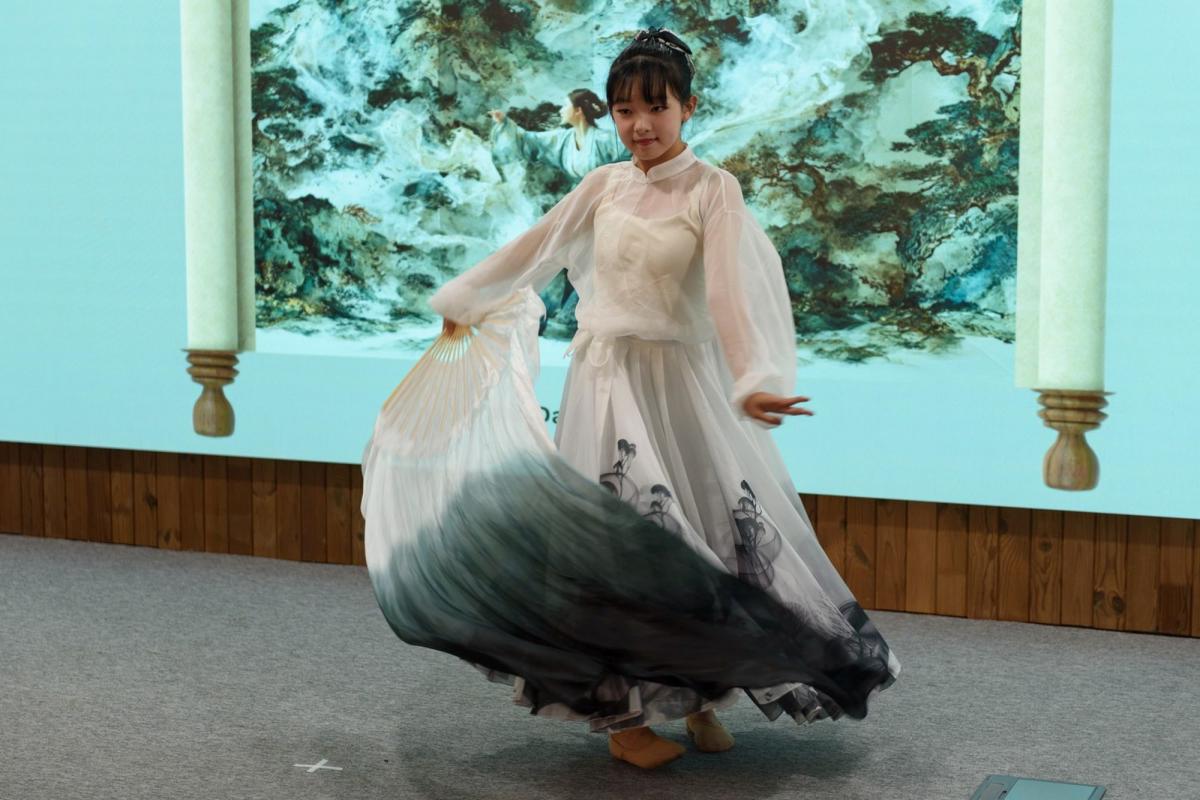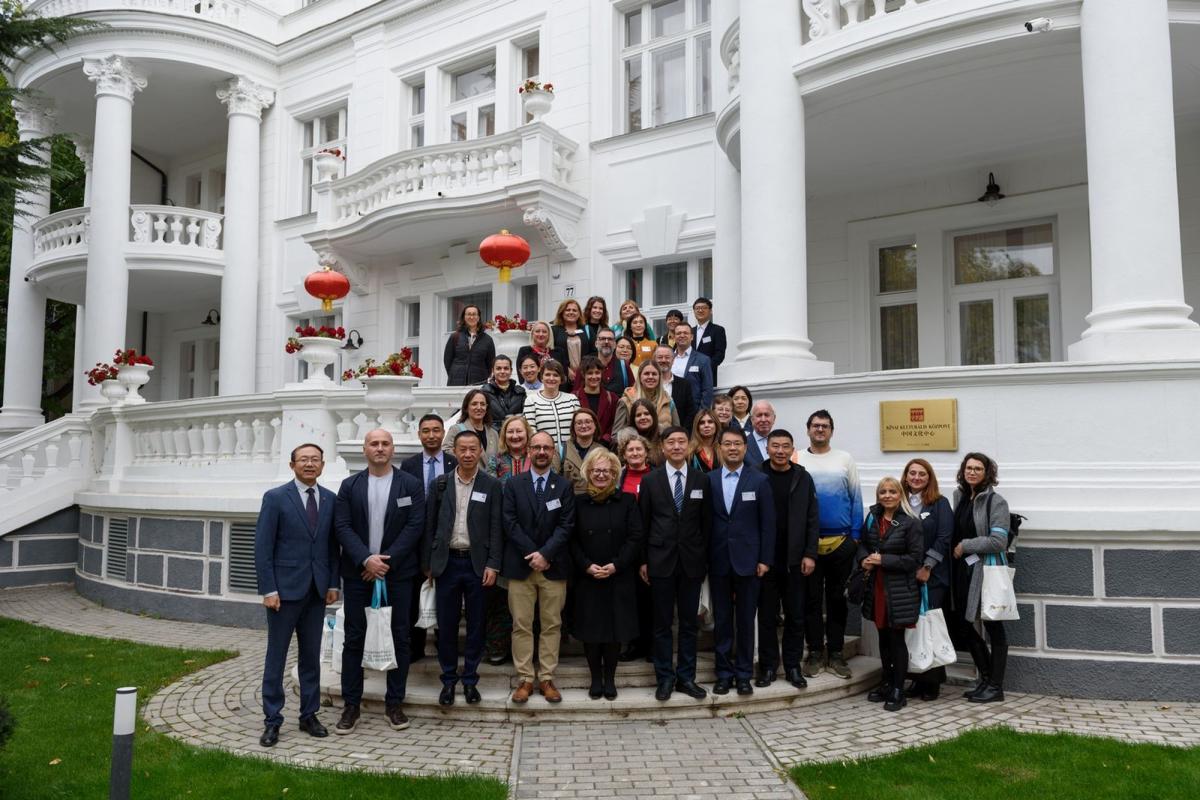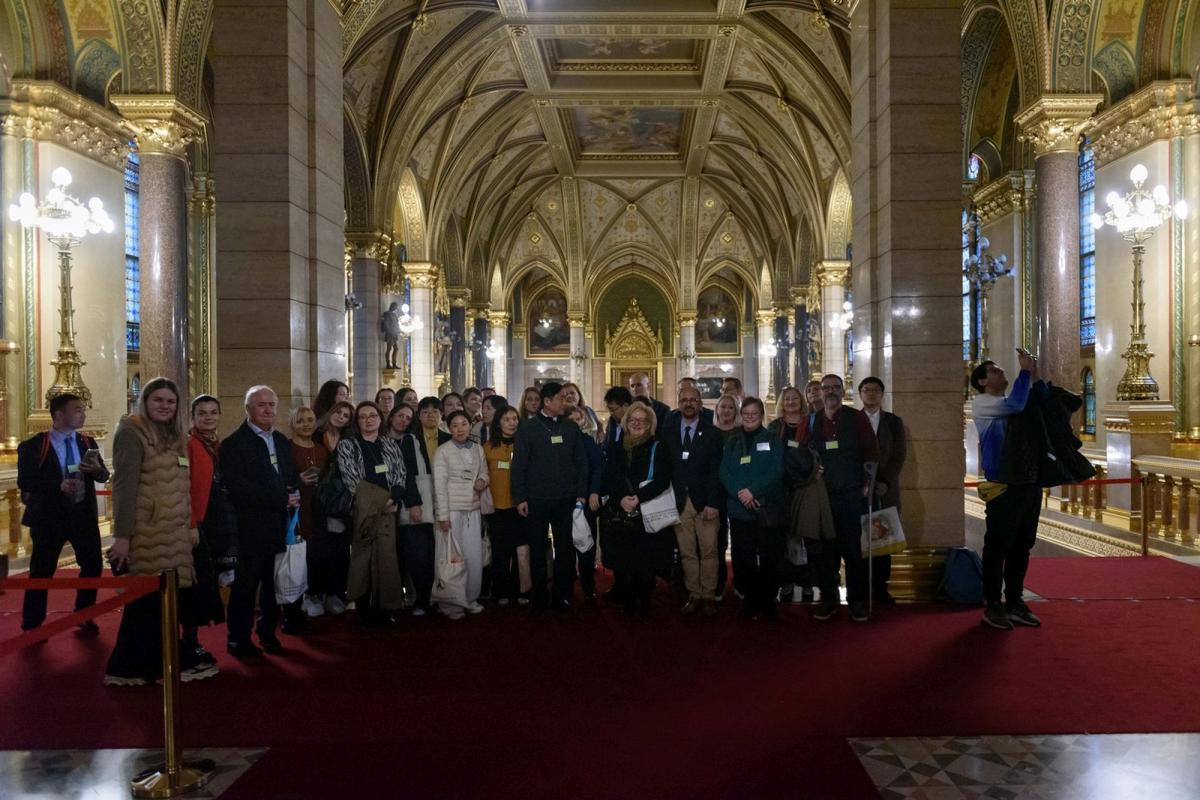
The National Széchényi Library hosted the international forum on the future of libraries
At the 4th China–Central and Eastern European Countries (CEEC) Curators’ Forum of Libraries Union, held in Budapest, participants discussed the impact of digital transformation, emerging innovations and trends, the new roles of libraries and librarians, as well as new opportunities for professional cooperation.
Between 19th and 22nd October 2025 Budapest hosted the 4th China–Central and Eastern European Countries (CEEC) Curators’ Forum of Libraries Union, an international professional conference. This year’s prestigious event was hosted by the National Széchényi Library, part of the Hungarian National Museum Public Collection Centre (MNMKK). The occasion was especially noteworthy, as it was the first time this high-profile professional forum was held in Europe with in-person participation.
The four-day forum aimed to strengthen the cultural pillar of the “16+1 Cooperation” launched in 2012 between China and sixteen Central and Eastern European countries, promoting international library partnerships and the protection of cultural heritage. The conference’s central theme, “Connection, Creation, Interaction, Inspiration – The Future of Libraries,” was deservedly chosen for discussing current and forward-looking issues of the library profession.
The opening ceremony, held on Monday, 20th October 2025 at the National Library, was attended by His Excellency Kong Tao, Ambassador of the People’s Republic of China to Hungary, Dr. Ádám Imre Szűcs, Deputy State Secretary of the Ministry of Foreign Affairs and Trade, as well as leading representatives of international library organizations.
In her welcoming speech, Judit Gerencsér, Deputy Director General of the National Széchényi Library, emphasized: “In the coming days, we will have many opportunities to learn from one another and be inspired by each other, because we share a love for our profession and possess the language that leads us through our vocation.” In her English-language presentation, she highlighted that libraries today face the challenges of rapidly changing user habits, digital transformation, and artificial intelligence. As she stated: “The library of the future can only be born if we build and shape it together.”
His Excellency Kong Tao, Ambassador of the People’s Republic of China to Hungary, in his speech under the framework of the Global Civilization Initiative, called for deepening practical cooperation and emphasized that libraries “play a key role in connecting civilizations and enlightening minds.”
Dr. Ádám Imre Szűcs, Deputy State Secretary of the Ministry of Foreign Affairs and Trade, underlined that libraries are indispensable institutions for preserving humanity’s cultural heritage. He added that Hungary attaches great importance to China–CEE cooperation and to the Belt and Road Initiative, aiming to strengthen knowledge sharing, technological partnership, and the protection of cultural values in the library sector.
Following the welcoming speeches, participants watched a greeting video and message. Liu Tung, Secretary General of the Forum’s Secretariat, read a letter of greeting from Ambassador Chen Guoju, Special Representative for China–CEE Cooperation Affairs at the Chinese Ministry of Foreign Affairs. A summary video followed, presenting the activities of the China–CEEC Libraries Union to date, highlighting the achievements of joint projects, professional meetings, and knowledge-sharing initiatives.
The series of plenary lectures was opened by Helen Mandl, Deputy Secretary General of the International Federation of Library Associations and Institutions (IFLA), and Andrew Cranfield, Director of the European Bureau of Library, Information and Documentation Associations (EBLIDA). Their presentations focused on innovation, inclusion, and the ongoing transformation of libraries.
During Monday’s sessions, Liu Tung, Director General of Hangzhou Public Library, spoke about the renewal of community reading spaces, while Ting Jung, Deputy Director of Nanjing Library, addressed opportunities for data analysis and collaboration. Jasmina Ninkov, Director of the National Library of Serbia, concluded the plenary presentations, interpreting the future of libraries through the concepts of connection, creation, interaction, and inspiration.
The plenary sessions were followed by thematic sections, exploring the new roles and responsibilities of libraries in the information society in light of new industrial revolutions, the implementation of new technologies, and the building of cultural bridges between regions and countries for the preservation and dissemination of cultural heritage.
During Monday afternoon’s round-table discussions, participants addressed topics such as the digitalization of cultural heritage, lifelong learning, the renewal of the library profession, new professional roles, and community- and marketing-based innovations in libraries.
Tuesday’s programme focused on the future of library cooperation and the impact of artificial intelligence, paying special attention to the evolving roles of public collections. Kuo Lamei, Deputy Director of Suzhou Library, discussed the service-shaping power of new technologies, while Wu Hao, Deputy Director of Sun Yat-sen Library of Guangdong Province, presented on the transformation of library operations under AI. The program concluded with the topic “Bookmark Your Library – Marketing, Public Awareness, Promotion,” providing an opportunity to showcase best international practices in library communication, community building, and reading promotion.
Among the Hungarian presenters, Judit Gerencsér spoke about trends and innovations shaping the future of the national library, while Dániel Görög, Mátyás Rényi, Rita Ráczné Radó, Katalin Takácsné Bubnó, and Máté Szentkereszti gave presentations on the digital renewal of the National Széchényi Library, the application of artificial intelligence in libraries, and the evolving roles of public collections.
The conference featured outstanding international participation, with a total of 39 professional presentations, showcasing various aspects of applying library innovations. The professional programme was complemented by cultural events, offering participants an opportunity to explore the rich cultural heritage Budapest.
Established in 2018, the China–CEEC Libraries Union now includes 63 member institutions across 16 countries, fostering cultural exchange and professional cooperation between China and the Central and Eastern European region. It promotes international collaboration and cultural dialogue among libraries and supports the development of joint programmes in the field of library and information science. Over the years, the Union has united Chinese and Central and Eastern European libraries, providing a platform for sharing best practices and experiences.
The event offered an excellent opportunity for leaders and representatives of Chinese and Central and Eastern European libraries to meet at the highest professional level. The Budapest conference further strengthened international cooperation, enhanced professional dialogue, and fostered the sharing of knowledge and best practices among representatives of the Hungarian and international library communities. It marked another milestone in the history of scientific and cultural partnership — a forum that once again proved that libraries remain key institutions of the knowledge society and community hubs of the future.


